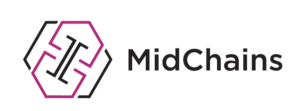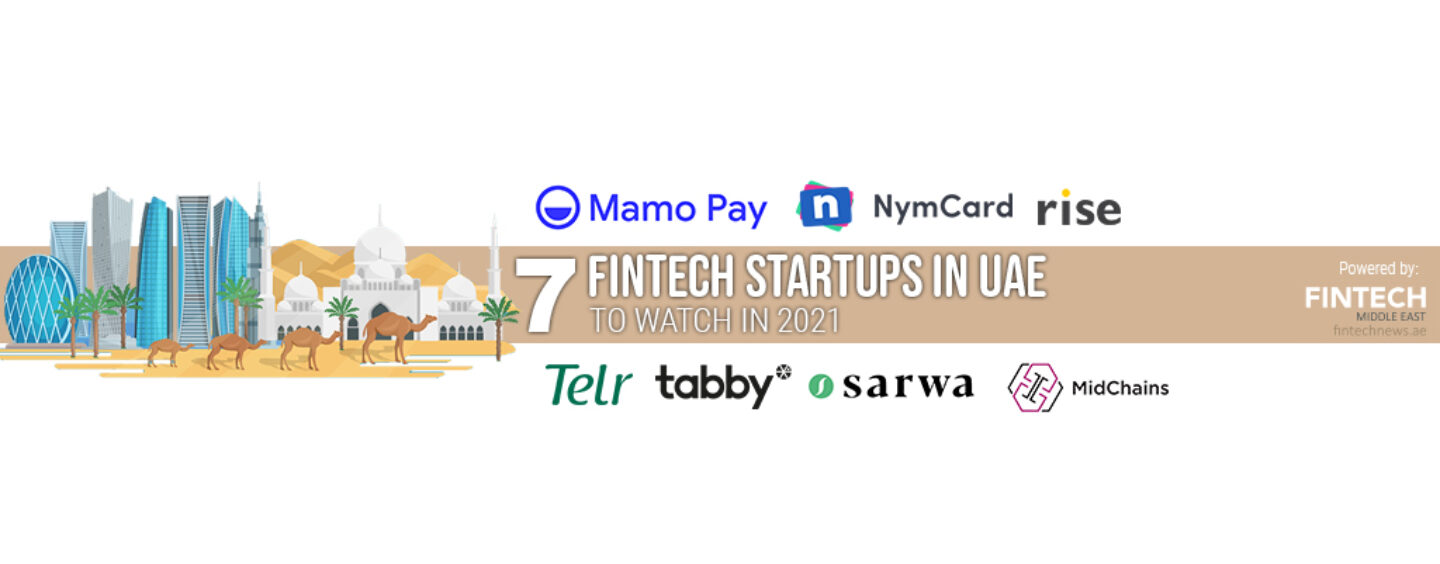The United Arab Emirates (UAE) is the largest fintech hub for startups in the Middle East and North Africa (MENA), housing about 50% of the region’s fintech companies.
In the UAE, two leading financial free zones, Abu Dhabi Global Market (ADGM) and Dubai International Financial Centre (DIFC), deserve much of the credit for the country’s burgeoning fintech sector and are behind some of the region’s most notable fintech initiatives including the DIFC Fintech Hive, the US$100 million DIFC Fintech Fund, the ADGM RegLab fintech sandbox and the Plug and Play ADGM accelerator program.
In 2020, the UAE’s fintech industry continued to grow on the back of new fintech developments and favorable rules being introduced.
As we head into 2021, we look today at seven fintech startups in the UAE that made notable strides this year and that are poised for further growth. These companies either received backing from prominent investors this year, inked key partnerships or gained notable traction.
Tabby

Founded in 2019, Tabby is a relatively young buy-now-pay-later fintech startup based in Dubai. Tabby partners with retailers to offer their customers, both online and in-store, the ability to defer paying for their purchases for up to 30 days or to pay in four equal monthly instalments at zero cost to the consumer.
Tabby customers can use its service across more than 500 merchants, including brands like IKEA, Toys R Us and Ace Hardware, and regional retail giants such as Al Futtaim Group.
The startup raised US$23 million in a Series A funding round from Abu Dhabi state investor Mubadala Investment Company and Arbor Ventures in December 2020 after it announced a partnership with Visa and joined the Saudi Arabian Central Bank’s regulatory sandbox for fintech firms. It secured a US$7 million funding round in June 2020.
MidChains

Founded in 2017, MidChains is an upcoming regulated digital asset investment exchange. Based in Abu Dhabi Global Market (ADGM), MidChains aims to meet the sophisticated needs of investors by offering premium services, including a regulated virtual asset multilateral trading facility (MTF) and custodian services for multi-asset classes like virtual assets, digital securities, stable coins and derivatives.
MidChains is the only Emirati founded virtual asset exchange in the UAE capital. Last year, it gained approval from ADGM regulator to operate a crypto exchange in Abu Dhabi.
The startup closed an undisclosed funding round in July from investors including Mubadala Investment Company’s asset management arm, Miami International Holdings (MIH) and the Abu Dhabi Investment Office (ADIO).
Mamo Pay

Founded by former Google employees, Mamo Pay is a Dubai-based peer-to-peer (P2P) payment app. Mamo Pay allows users to make payments and transfers using the recipients phone number or email address only, simplifying the traditional process and data that banks usually require, like IBAN numbers.
Mamo Pay went live in December 2020 after raising US$1.5 million in April from Global Founders Capital (GFC) with participation from Global Ventures, VentureSouq, MSA Capital, Dubai Angel Investors (DAI), 500 Startups and some angel investors. It joined Visa’s Fintech Fast Track program in June.
Sarwa

Based in Dubai, Sarwa is a low-cost robo-advisory platform targeting young professionals. The solution gauges an investor’s risk tolerance and assigns them a tailored investment portfolio of exchange traded funds (ETFs).
Founded in 2017, Sarwa received a full operating license in November 2018 following its graduation from the Dubai Financial Services Authority (DFSA)’s regulatory sandbox. As of January 2020, it had 10,000 registered users, following a monthly growth of over 20% since it launched.
Sarwa raised a US$8.4 million Series A funding round in January which it said it would use to expand its operations into new markets including Saudi Arabia, and open another office in Abu Dhabi. Backers of the startup include Dubai International Financial Center (DIFC), ADIO, Vision Ventures from Saudi Arabia, Middle East Venture Partners (MEVP) and UK’s Hambro Perks.
Rise

Founded in 2017, Rise is a neobanking platform that provides migrant and domestic workers in the GCC region with financial products and services, as well as educational material.
The platform, accessible mainly through a mobile app, currently offers products including a bank account with no minimum balance or salary, an accompanying debit card, fast and seamless onboarding, remittance services, insurance products, and unsecured consumer loans.
Rise raised over US$1 million in funding in March 2020. At the time, it claimed it had grown more than 50% month-on-month and planned to bring its services to over a million migrants within the next two years, primarily targeting migrants from India, the Philippines, Bangladesh and Pakistan.
Backed by the likes of MEVP and DIFC, Rise is now looking to expand to Saudi Arabia and Bahrain. In October 2020, it launched Xare, a new mobile banking offering.
Telr

Established in 2014, Telr is an award-winning, Dubai-based startup providing payment gateway solutions for small and medium-sized enterprises (SMEs), government bodies and large corporations.
Telr offers a set of APIs and tools that enable businesses and organizations to accept and manage online payments via web, mobile and social media. It also offers digital invoicing, anti-fraud security and real-time monitoring services, QR Codes, social commerce solutions, as well as entry-level fee packages for new startups.
In November 2020, Telr launched a new e-commerce platform in the UAE and Saudi Arabia called TelrShops, allowing merchants to create an online store in just five minutes. The platform is fully integrated with the Telr Payment Gateway and comes with features including inventory and store management, data insights and analytics, tax management services, orders management, domains integration, multi-currency stores, and more.
Telr raised an undisclosed funding in December 2019 from existing investors including iMENA Group. The startup said at the time that it would use the proceeds to fuel its growth across the Gulf Cooperation Council (GCC) and wider Middle East region. Telr currently has offices in the UAE, Saudi Arabia, India and Singapore.
NymCard

NymCard is an end-to-end payment platform partnering with financial institutions to provide a digital payment solution to the unbanked and partnering with banks to offer their clients a superior payments experience.
With its cloud-based, open API, Nymcard’s platform enables financial institutions, corporates, and fintechs to deploy and launch virtual, plastic and tokenized cards in as little as eight weeks.
Founded in Beirut, Lebanon in 2018, NymCard relocated its headquarters to Abu Dhabi in 2019 to be “closer to [its] customers, tech startups, and payments innovators looking for different types of modern payment solutions.”
The startup has collaborated with financial institutions in Iraq and Jordan to launch innovative products, and is now eyeing markets including the UAE, Saudi Arabia and Egypt. NymCard received an in-principle approval from ADGM’s Financial Services Regulatory Authority (FSRA) in August 2020.








2 Comments so far
Jump into a conversation